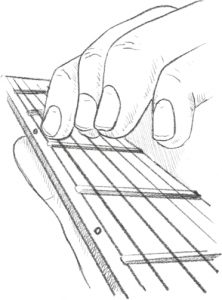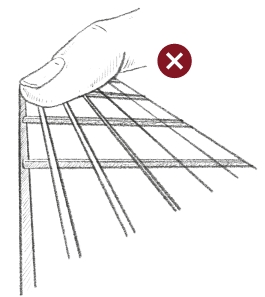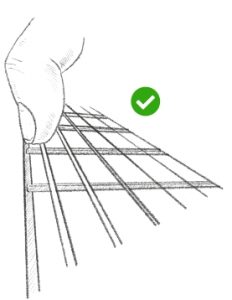
Dexterity
Before you dive into music theory, exploring the vast world of intervals, modes, and all the elements that are part of any guitarist's study, let's take a step back and look at an often overlooked but important step that leads perfectly into practical theory.
Getting comfortable on the fretboard with finger dexterity training is a crucial part of guitar study. If you can dedicate even five minutes to this before any other lessons or theory, you will increase your chances of sticking with the guitar.
The goal of the dexterity exercises is to address the following:
- Get your fingers comfortable on the fretboard.
- Get all your fingers involved early.
- Develop finger strength and poise.
- Slowly introduce theory in a more natural way.
- Develop finger positioning without anxiety.
Dexterity training does not replace the instructor. Suppose you decide to learn on your own from books, online videos, or maybe you find a local in-person instructor. In any case, this guide is a supplementary component and not a replacement for theory instruction. However, we do touch on music theory and discuss it in general terms; the way we approach it is mild.
If you choose to work through this book first before obtaining instruction, it will help get your fingers comfortable pressing the strings. You can concentrate on the theory itself and less on pressing strings because your fingers will already have the dexterity you most definitely need.
Dexterity is an essential step in learning guitar.
Without proper control of your fingers, learning the scales and chords can seem complicated. Like all things, the guitar is a step-by-step process; dexterity is almost always overlooked or lightly addressed in the beginning steps of learning the guitar. If you spend time getting your fingers accustomed to pressing the strings with each finger and with the proper pressure and placement, the chords and scales will fall in line because you will have trained your fingers to work independently of the theory.
Finger poise and pressure:

Fingers resting unintentionally across other strings will create unwanted buzz; it is essential to overcome this early in your learning.

Starting the right way, take time early in your practice to ensure your fingers are pressing directly down and not resting on other strings.

